PGCE Primary
Marjon has been training teachers for 180 years and has a strong reputation both locally and nationally. It is a small, friendly university where you will be supported as an individual. We have partnerships with a wide range of primary schools so that your training year is rich and varied.

Entry requirements
A degree at 2:2 or above
GCSE English, Mathematics and Science at grade 4 or grade C or above (or an equivalent qualification)
Candidates must meet the Secretary of State’s ‘Fit to Teach’ requirements by completing an online medical questionnaire
A Disclosure and Barring Service (DBS) check is required
We are committed to safeguarding and promoting the welfare of children and trainees. All trainees are expected to share this commitment and demonstrate consistently high standards of personal and professional conduct.
UCAS code X100
UCAS institution code P63
Duration 1 year full-time or 2 years part-time
Full entry requirements
- Experience of working with young people is recommended
- Candidates must take part in individual and group interviews with representative from partnership schools and the University
Any questions about postgraduate study at Marjon?
Contact Rachel Bailey-Lewis, our Student Recruitment Officer (Postgraduate).
Course Summary
Plymouth Marjon University is one of the most long-standing teacher training institutions in the country; we’ve been training teachers since the 1840s.
If you want to train to teach whilst being an active part of a university, a PGCE is the right choice for you. On this course you’ll be supported as a trainee within the university, at the same time as having high exposure to classrooms in our huge range of partnership schools.
You will spend a minimum of 24 weeks in placements at key stages one and two. Your classroom responsibilities will increase as your confidence and expertise grows. This experience will ensure you are comfortable with your skills and confident of what you are looking for when applying for your first role as an Early Career Teacher
The curriculum is based around three themes and these are embedded in all MTEP modules across our provision and is carefully structured to provide you with the skills and subject knowledge required to teach all the National Curriculum subjects.
The themes are:
- The professional role of the developing teacher
- Development of teaching and learning
- Curriculum and specialisms
Our processes are aligned with the MTEP curriculum, the CCF, the ECF, the ITE Ofsted inspection framework and the Teachers’ Standards and explicitly considers how all components are sequenced incrementally to build your expertise and confidence. You are taught, trained and supported at both the centre and on placement by expert colleagues.
This carefully structured course will provide you with the skills and subject knowledge required to teach all the National Curriculum subjects through working with experienced and passionate tutors in interactive and practical teaching sessions. Along with these subject studies, you’ll develop a thorough grounding in all the major skills and issues of education including special educational needs and disabilities, behaviour management, setting high expectations and identifying pupil progress, planning and assessment, managing the teaching and learning of a classroom team, child development, cognitive science and learning through play.
If you join us, you will explore the kind of critical thinking that results in a reflective, flexible, caring, confident and knowledgeable approach to teaching, with outstanding results for pupils. Graduates from the Marjon PGCE achieve extremely high rates of employment with fast progression to leadership roles.
Why this course at Marjon?
Top university in the UK for education-based courses in the Postgraduate Taught Experience Survey 2021 and we have been training teachers for 180 years!
98 % of our graduates are in further study or sustained employment and 93% in a professional role (LEO, 2021)
We have relationships with around 300 primary schools to give you a wide choice of learning experiences
Many of our graduate teachers proceed rapidly up the career ladder and into middle leadership positions within a few years of qualifying.
Our expertise covers many specialisms of education including childhood development, early years reading and maths and cognitive science.
Our caring and expert tutors are dedicated to helping you be the best teacher you can be
Modules for this course
1st Year
Inclusion in the primary classroom
Developing knowledge for planning, teaching and assessment
Developing a philosophy of learning and teaching across the primary curriculum
Current educational issues for the teaching professional
Teaching placement
Current students say...
Charles Grace
“I don’t think I’ve ever needed to be so organised. But once the dust settles, the whole process starts linking together and you become a new, more efficient and productive person as a result. It’s challenging, but rewarding. You pick up small ‘wins’ every day by measuring your progression. I’m enjoying becoming the person that this course is developing me to be. The course demands a huge amount of focus, and when I get through each day successfully, it’s another layer of confidence.”
Alice Ashburn
“I have been fully supported in transitioning between careers and made to feel very welcome by all of the staff, both at university and at my school. I started my school placement last month feeling well prepared and excited. This is thanks to the encouragement and support we have received from staff at Marjon which has made the whole experience so far enjoyable and exciting. Since starting my PGCE, my confidence in my academic ability and practical teaching skills has increased day by day.”
Kayley Smith
“This course offers practical subject knowledge sessions on every aspect of the national curriculum. These sessions are always engaging, current and give you great ideas for your own teaching practice. The lecturers are really knowledgeable and passionate about their own subject. It’s great to see the content that you’re taught at university being used in the classroom environment during placement. This course challenges you, provoking you to think critically about current educational issues.”
This course is perfect if you’re curious about these questions:
How do children learn effectively?
How can I support individual needs in the classroom to maximise progress?
How can I promote a love of learning in children?
What can learning outside of the classroom bring to a child's experience of school?
What is a broad and balanced curriculum?
What is the value of building strong relationships with children and families?
“ The support that Marjon has provided us for transitioning from university to school has been amazing! I have left with a giant toolkit of possibilities to use throughout my, hopefully, many years as a teacher. ”
See where our graduates are now
Chloe McFadzean
“Teaching is a challenging but rewarding career where no two days are the same. At university, I was challenged and guided through the essentials which have allowed me to achieve my goal of becoming a teacher. The ‘family feel’ that Marjon boasts allowed me to ask for help and guidance without doubt or hesitation. This guidance ensured that my confidence and self-esteem grew during one of my most difficult years. Most of all, Marjon helped me to believe in myself.”
Chloe teaches at Broadhempston Primary School.
Claire Fraser
“I cannot fault the training I received from the team at Marjon during my PGCE course. The lecturers go above and beyond to support their trainees and were readily available if I ever needed any advice. My placement schools were carefully chosen to ensure that I was supported. The lectures throughout the course were informative, engaging and useful. The balance of placements and lectures on the PGCE ensures you have a breadth of experience to prepare you for a career in teaching.”
Claire teaches at Whitchurch Primary School.
Jack Johansen
“Marjon helped me develop a sense of belief and confidence in myself that I have the ability to teach in both key stages. Alongside my placements, the active and engaging lectures helped me develop my own practice and philosophy of teaching and learning. Although the workload was intense, I do feel it prepared me life as a teacher. Teaching gives me a great sense of fulfilment, as I know I am in a place where I can help shape these young children’s futures.”
Jack teaches at Galmpton C of E Primary School.
What might you become?
You will become an Early Career Teacher (ECT) in a primary school. Most trainees start to apply for jobs from January ready for September start. Our Jobs Fair in late winter helps many trainees to get their first role.
Plymouth Marjon University is widely renowned for producing excellent teachers. We have superb links with over 300 partnership schools throughout the South West, London and overseas and our graduates teach in schools across the country. Our curriculum was praised by Ofsted for being "Designed to ensure you are well prepared for your wider professional responsibilities, including for pupils’ pastoral care. You will gain a secure understanding of how best to teach personal, social, health and citizenship education, in addition to your chosen subject specialism" (Ofsted, 2023).
We have a long established history of teacher education, we've got 180 years of experience in training teachers. A PGCE from Marjon represents a strong start to any teaching career. The Guardian University Guide 2024 ranked us Top 5 in the UK for education.
Working with:
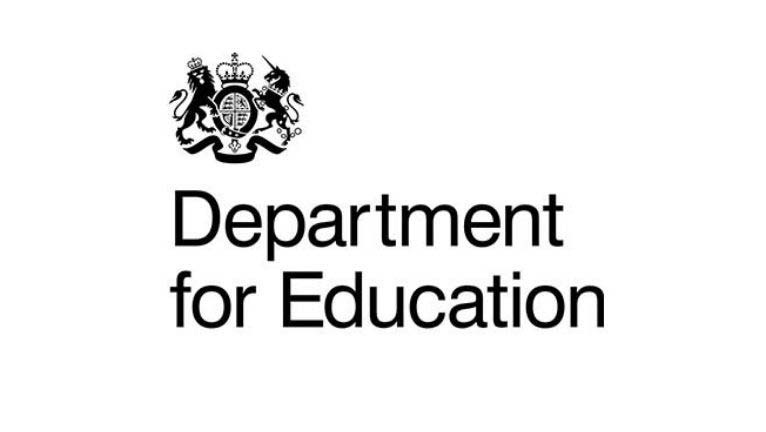
Dept for Education
Marjon is recognised as a teacher training provider by the Dept for Education.
This course may also be available as a School-based PGCE
How you’ll be taught and assessed?
How will you be taught?
Includes lectures, seminars, tutorials, practical workshops and at least 24 weeks of placement experiences across both key stages. Teaching is intensive and akin to being in a full time job (9 to 5 Monday to Friday).
How will you be assessed?
Based on the same way you will be assessed when you are a qualified teacher and includes: teaching portfolios, assignments, presentations, observed teaching and case studies.
Placement assessment is carried out by school mentors and university tutors against the three themes of the MTEP curriculum:
- The professional role of the developing teacher
- Development of teaching and learning
- Curriculum and specialisms
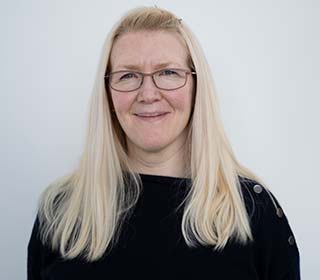
Ruth has been at Marjon for four years and teaches across the primary education programmes. She taught in primary schools in Devon for 14 years and was Head of School for 8 years.
Fees and funding
Fees UK students: £9,250
Fees for International students: £14,500
Additional costs:
This fee covers your tuition and access to course-specific equipment and facilities, as well associated services including access to the library, study skills support, IT support, student support and wellbeing services and membership of the Student Union. There may be additional costs by course.
Funding available for this course
Our Student Funding Advisors offer confidential and impartial advice about your funding options.
Learn more about fundingLecturers

Ruth has been at Marjon for 4 years and teaches across the primary education programmes. She taught in primary schools in Devon for 14 years and was Head of School for 8 years. She is the subject tutor for history. She is Programme Lead for the Primary PGCE and specialist pathways.

Victoria Brown is a Senior Lecturer for the Marjon Teacher Education Partnership at Plymouth Marjon University with interests in:
- Early Years, Play and Child Development
- Research methods and dissertation supervision
- Teacher Professional Development
- Learning and Teaching
- Creativity
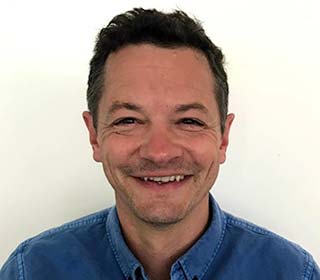
Scott teaches across undergraduate and postgraduate ITE programmes. He specialises in English and cognitive sciences. He is joint Programme Lead for BEd Primary and Early Years courses.

Giles is Partnership Leader for MTEP with a focus on maintaining partnerships and the Teaching Apprenticeship route into teaching.
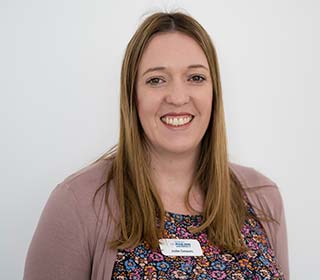
Jodie teaches on our teacher training courses, specialising in primary science as well as supporting students on placement. She is the Head of ITT and she also supports primary colleagues across the city and beyond through her work with Plymouth Science.
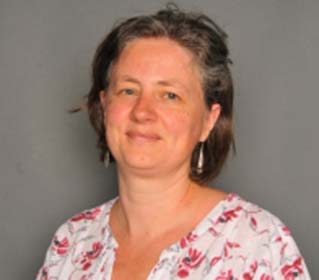
Tara specialises in teaching primary mathematics and is also currently involved with an international project about making maths more accessible to primary aged children and their parents.

Alex specialises in Special Educational Needs and Disabilities (SEND) and is currently working towards a Masters Degree in Mental Health.

More information
For tips about every stage of the teacher training journey, from making your application shine to securing your first teaching role, see the how to get into teaching guide.
We take your career very seriously. Head teachers are part of our assessment and interview panels and we will start to talk to you about your ambitions from the first moment we meet you.
As you leave us, you will take with you a Career Entry Development Profile (CEDP), clarifying your strengths and the areas you wish to work on. This will mean that your first employer will know you well immediately and be able to help to support you during your ECT years.
After you graduate, we keep in touch. You’ll join a huge network of Marjon education alumni who can help you in your future career; all recognising the extremely high quality of your training.




